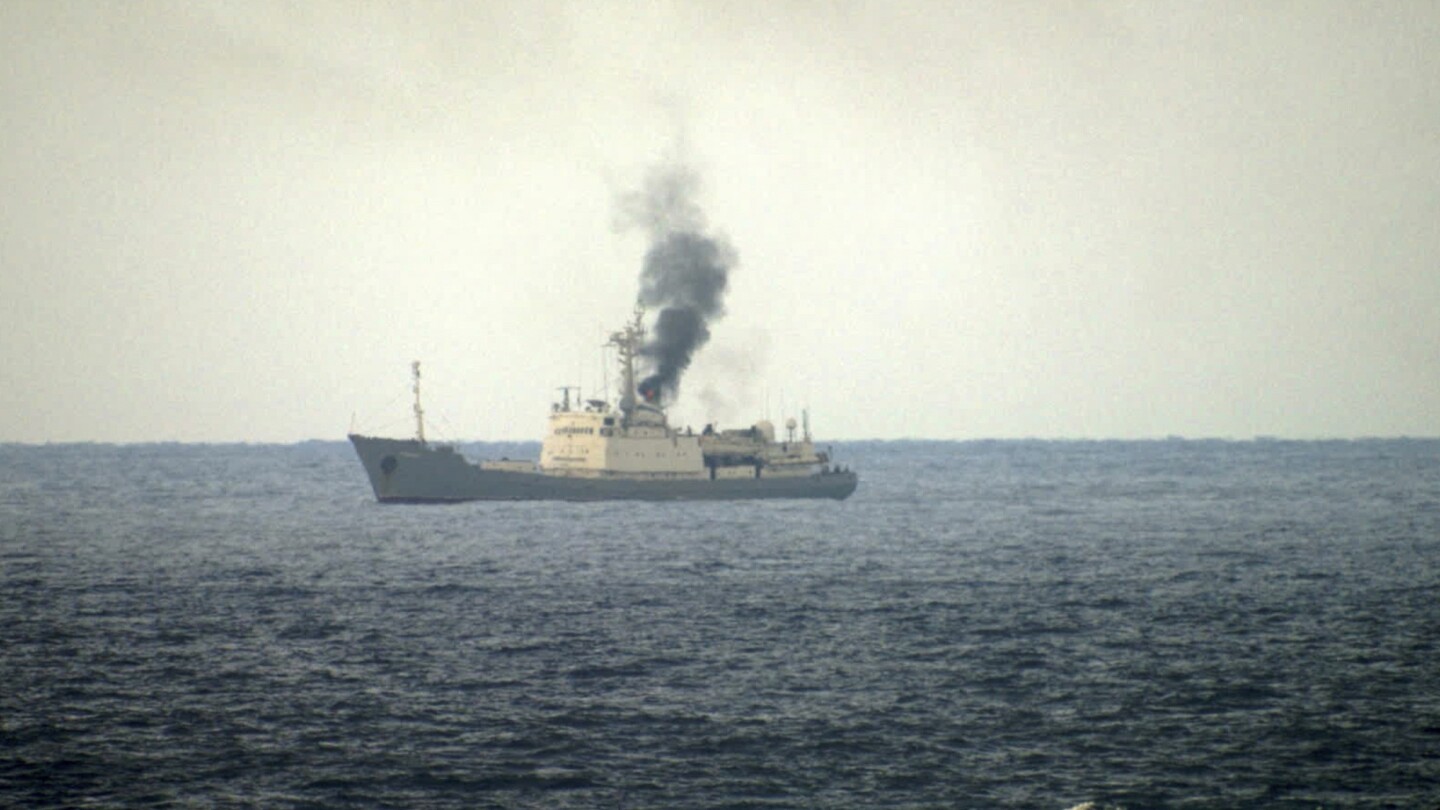A Mysterious Blaze: Inside the Russian Spy Ship Fire Near Syria’s Coast
In a startling turn of events, a Russian spy vessel has been engulfed in flames off the coast of Syria, igniting fervent discussions regarding the implications for regional security and international relations. Eyewitness accounts and audio broadcasts provide a dramatic glimpse into this unfolding incident, raising critical questions about the ship’s mission and operational safety. This article delves deep into the mysterious blaze, exploring its causes, consequences, and the broader geopolitical context surrounding the incident.
The Incident Unfolds
On a seemingly ordinary day near the Syrian coast, chaos erupted as the Russian spy ship, identified as the Vasily Danchak, was reported to be on fire. Eyewitness testimonies describe a scene of panic, with thick plumes of smoke billowing into the sky and the sounds of explosions echoing across the waters. The fire reportedly broke out in the early morning hours, with local fishermen and other vessels in the vicinity witnessing the alarming event.
Audio broadcasts from the scene revealed frantic communications, with crew members attempting to manage the crisis. The Russian Navy has not disclosed the details of what caused the fire, leading to rampant speculation. Some experts suggest that it could be due to mechanical failure, while others theorize potential external sabotage or even a military operation gone awry.
Understanding the Vessel’s Mission
To comprehend the gravity of the situation, one must consider the Vasily Danchak and its role within the Russian Navy. This vessel is known for its intelligence-gathering capabilities, often deployed in areas of strategic interest. Typically equipped with advanced surveillance technology, spy ships like the Danchak play a crucial role in monitoring maritime activities and gathering intelligence on regional adversaries.
- Intelligence Gathering: The vessel’s primary function involves intercepting communications and gathering data on naval movements.
- Military Operations: It also assists in supporting military operations in the region, often acting as a floating command center.
- Geopolitical Presence: The presence of such ships signals a nation’s commitment to assert its influence over strategic maritime routes.
As such, the fire on the Vasily Danchak raises significant questions: What sensitive information may have been compromised? How does this incident affect Russia’s operational capabilities in the Mediterranean?
Eyewitness Accounts and Media Coverage
The incident has not gone unnoticed by the media, with various outlets scrambling to report on the unfolding drama. Eyewitness accounts, particularly from local fishermen, depict a scene of urgency and confusion. One fisherman recounted, “We saw the smoke and heard the explosions. It was terrifying. We didn’t know if we were in danger.” Such narratives highlight the immediate impact on civilians and the potential risks involved in military operations near populated areas.
Moreover, audio broadcasts from naval communication channels reveal a tense atmosphere among the crew members. Calls for assistance and attempts to extinguish the flames were evident, painting a picture of a vessel in distress. This has led to questions about the preparedness of the crew and the effectiveness of onboard firefighting measures in the event of an emergency.
Security Implications of the Blaze
The fire on the Russian spy ship is not merely an isolated incident; it has profound implications for regional security and international politics. The Mediterranean Sea is a hotspot for military activity, with various nations vying for influence. The presence of a Russian spy vessel conducting operations off the Syrian coast indicates Russia’s strategic interests in the region, particularly in support of the Assad regime.
Key points of concern include:
- Increased Tensions: The incident could escalate tensions between Russia and Western nations, especially if any evidence emerges suggesting hostile intent or sabotage.
- Impact on Intelligence Operations: The loss or damage of the vessel could hinder Russia’s intelligence-gathering capabilities in the region, affecting its military strategy.
- Regional Reactions: Other nations in the Mediterranean, particularly NATO allies, may reassess their maritime security strategies in light of this incident.
Potential Causes of the Fire
While the exact cause of the fire remains under investigation, several potential scenarios have been proposed by military analysts:
- Mechanical Failure: Given the age and operational wear of many naval vessels, it’s plausible that a mechanical failure could have sparked the blaze.
- Sabotage: Speculation about sabotage is rife, especially considering the geopolitical tensions in the region. If this were the case, it could have serious repercussions for Russian naval operations.
- Accidental Fire: Fires can occur due to accidents during maintenance or routine operations, which could catch the crew off guard.
Looking Ahead: The Aftermath of the Blaze
The fire on the Russian spy ship off Syria’s coast is sure to have lasting implications. Investigations will undoubtedly follow, with Russia likely seeking to understand the cause of the incident and prevent future occurrences. Furthermore, the geopolitical landscape may shift as nations reassess their military postures in light of this event.
In the coming weeks, analysts will be closely monitoring Russia’s response and any changes in naval deployments in the Mediterranean. The incident serves as a stark reminder of the fragile nature of maritime security and the ever-present risks associated with military operations.
Conclusion
The mysterious blaze engulfing the Russian spy ship near Syria’s coast is more than just a maritime incident; it is a reflection of the intricate web of international relations and military strategy in a volatile region. As the investigation unfolds, the world watches closely, aware that the repercussions of this fire may ripple far beyond the waters of the Mediterranean. The incident underscores the importance of vigilance and preparedness in an era where maritime security remains paramount.
See more Update My News



